Known for their unique long bodies and lively personalities, Dachshunds usually have a lifespan of 12 to 16 years. This piece delves into the elements that affect Dachshund lifespan, prevalent health problems, and recommended care methods to ensure these delightful dogs enjoy a lengthy and healthy life.
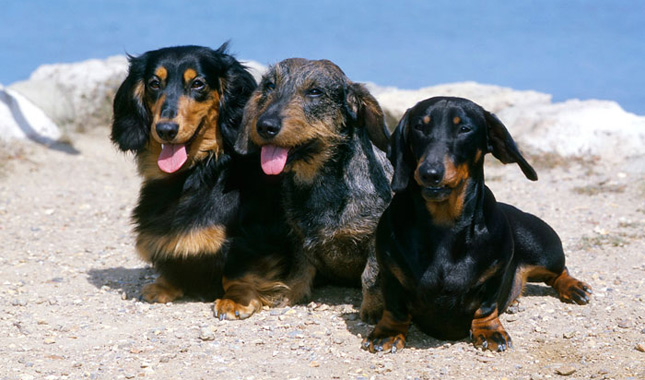
II. Dachshund Lifespan: What to Expect
Typical Lifespan
Dachshunds typically have a lifespan of 12 to 16 years, which can be attributed to their small size and body structure. The lifespan for Dachshund, like other smaller dog breeds, is generally longer compared to larger breeds.
Comparison with Other Dog Breeds
| Breed | Average Lifespan |
|---|---|
| Dachshund | 12-16 years |
| Chihuahua | 14-16 years |
| Labrador Retriever | 10-12 years |
| Great Dane | 7-10 years |
Differences Between Types of Dachshunds
There are two main categories of Dachshunds: standard and miniature. The lifespan disparity between these types is significant:
- Standard Dachshunds: Typically live for 12 to 14 years.
- Miniature Dachshunds: Tend to have longer lifespans, averaging from 14 to 16 years.
One potential explanation for the extended miniature dachshund lifespan is their lower susceptibility to spinal problems in comparison to standard Dachshunds. The smaller size and lighter weight of the Miniature variety result in less strain on their spines, potentially contributing to their increased longevity.

III. Factors Affecting Dachshund Lifespan
There are various important factors that impact the lifespan of Dachshunds
A. Heredity and Genes
Genetic tendencies are very important in deciding how long a Dachshund will live and how likely they are to develop specific health issues.
B. Nutrition
It is crucial to provide a well-rounded diet that suits the specific needs of Dachshunds in order to ensure they stay healthy and live a long life.

C. Movement and Exercise
Engaging in consistent and suitable physical activity is beneficial for keeping a balanced weight and enhancing the muscles that support the spine.
D. Routine Health Care
Regular veterinary examinations and preventative care are crucial for identifying and addressing possible health problems at an early stage.
E. Living Environment
A secure and calm living space plays a crucial role in enhancing a Dachshund’s overall health and longevity.
IV. Common Diseases Affecting Dachshund Lifespan
Having knowledge about the health issues specific to certain breeds is essential for taking proactive measures in caring for them.
A. Spine Problems
IVDD is a major issue because of the Dachshund’s long spine.
B. Cardiovascular Disease
Heart problems, although less frequent compared to other breeds, can impact Dachshunds as they get older.
C. Obesity
Carrying extra weight can cause more stress on the spine and joints, which may result in a range of health issues.
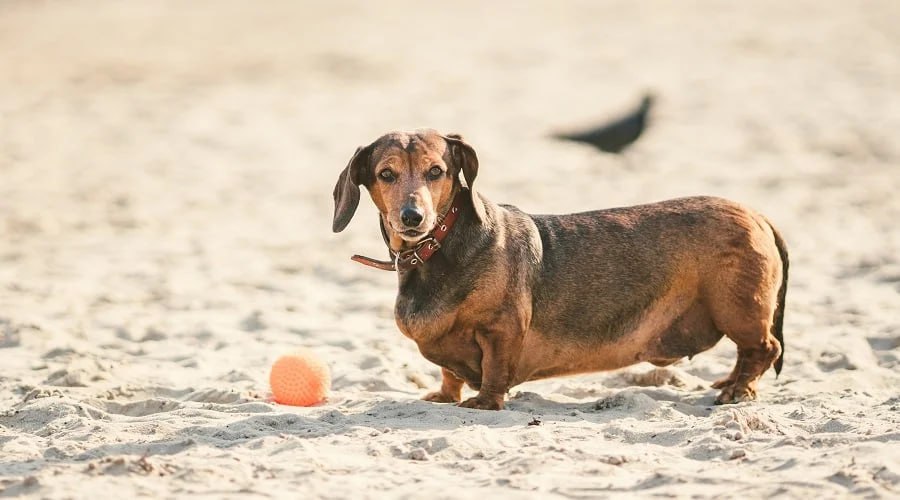
D. Eye Diseases
Dachshunds can be affected by eye conditions such as Progressive Retinal Atrophy (PRA) and cataracts.
E. Dental Problems
Dental problems are frequently seen in small dog breeds and can have a negative effect on their general health if not addressed.
V. How to Care for Dachshunds to Prolong Life
1. Balanced and Appropriate Diet
Dachshunds thrive on a well-balanced meal plan that caters to their specific nutritional needs, especially those designed for smaller dog breeds. Here are some essential factors to bear in mind:
Quality Nutrition
Opt for the best dog food for dachshunds , making certain it supplies indispensable nutrients such as proteins, fats, vitamins, and minerals.
Portion Control
Need to clearly understand the dachshund feeding chart. Refrain from providing excessive food to avert obesity, as this can worsen spinal complications and other health conditions. Adhere to feeding recommendations that are dependent on your dog’s age, weight, and physical activity.
Avoid Human Foods
Certain human edibles can be detrimental to canines, therefore it’s crucial to avoid giving them leftover food or any consumables that might disturb their gastrointestinal system:
Harmful edibles encompass:
- Alcohol
- Chocolate
- Candy
- Processed foods
- Milk and dairy products
- Onions and garlic
- Grapes and raisins
- Nuts, including almonds, pecans, and walnuts

Avoid Human Foods
2. Reasonable Exercise Schedule
Dachshunds need consistent physical activity to keep up their general well-being, however, it’s essential to adapt their exercises to suit their distinct body build:
Moderate Exercise
Involve your Dachshund in regular walks and interactive playtime every day to maintain their physical activity and cognitive engagement.
Avoid High-Impact Activities
Because of their elongated spines and short legs, Dachshunds are susceptible to back issues. It’s advisable to steer clear of activities that require jumping or intense running, as these can put a strain on their backs.
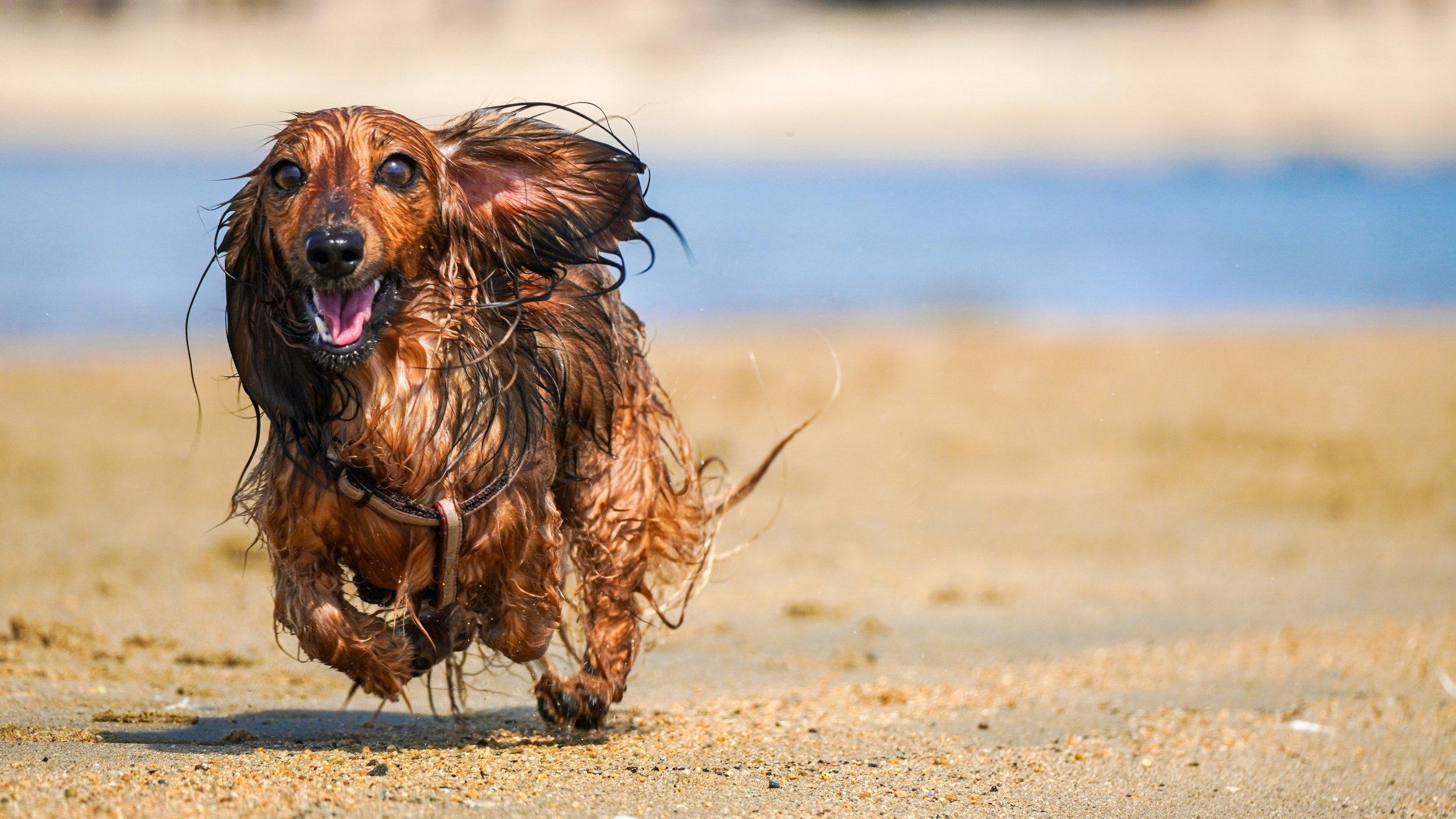
3. Periodic Health Check-ups
Consistent check-ups with a veterinarian are crucial for maintaining preventative measures and identifying potential health problems at an early stage :
Annual Check-ups
Plan yearly health check-ups for your Dachshund to evaluate its general well-being, incorporating dental hygiene, weight control, and any emerging concerns.
Vaccinations and Parasite Control
Maintain vaccinations on a current basis and establish a consistent plan for the prevention of fleas, ticks, and heartworms.
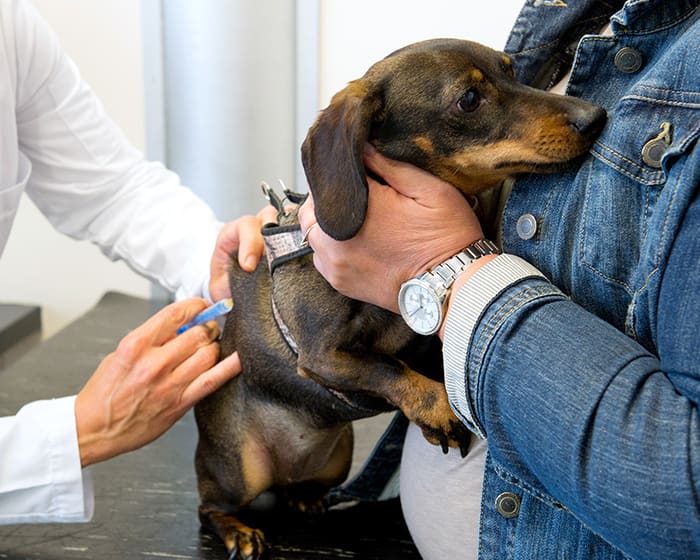
4. Dental Care
Preserving optimal dental cleanliness is vital for Dachshunds to avert issues related to oral health:
Daily Tooth Brushing
Regularly clean your dog’s teeth with a toothbrush and toothpaste designed specifically for dogs. This will help decrease the accumulation of plaque and prevent the development of periodontal disease.
Professional Cleanings
Arrange for expert dental cleanings as frequently suggested by your pet’s doctor to tackle any persistent plaque or tartar accumulation.
5.Weight Control
Excessive weight in Dachshunds can worsen existing health conditions, especially those related to their spinal cord.
Monitor Body Condition
It’s important to frequently evaluate your dog’s physical condition score to guarantee that they sustain a fit and healthy weight.
Adjust Diet and Exercise
Adjust their eating habits and physical activity regimen as required to avoid weight increase or assist in shedding any extra pounds if needed. By steadily applying these care methods throughout the lifespan of your Dachshund, you can substantially improve their life quality and encourage longevity. Every factor-diet, exercise, veterinary attention, dental cleanliness, and weight control-is crucial in preserving their health and happiness.
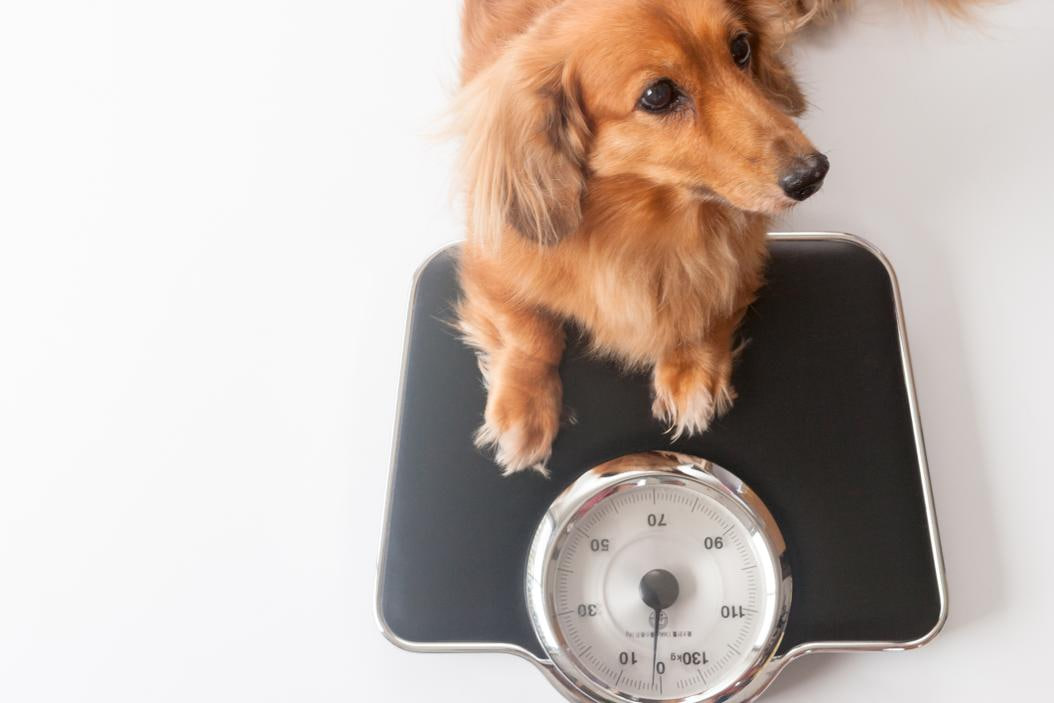
VI. Signs of an Aging Dachshund and Senior Care
Having knowledge about how Dachshunds age can assist in giving them the right care as they get older.
Physical and Behavioral Changes
Typical indications of getting older may include:
- Lowered stamina
- Hair turning gray
- Diminished eyesight or hearing
- Alterations in sleeping habits
Adjusting Diet for Older Dogs
Older Dachshunds could be helped by eating diets that are lower in calories, but high in proteins that are easy to digest and nutrients that support their joints.
Changes in Physical Activity
Adjust workout plans to suit limited mobility while promoting light physical activity.
Special Medical Care for Elderly Dachshunds
Enhance the number of veterinary visits and think about incorporating supplements to support joint health and cognitive abilities.

Conclusion
Knowing the elements that influence Dachshund lifespan is important in order to give them the best possible care. By providing them with good food, regular physical activity, consistent medical attention, and a nurturing atmosphere, many Dachshunds can reach their teenage years. Being mindful of health issues specific to the breed and adjusting their care as they get older can help guarantee that your beloved pet has a lengthy, healthy, and joyful life.

